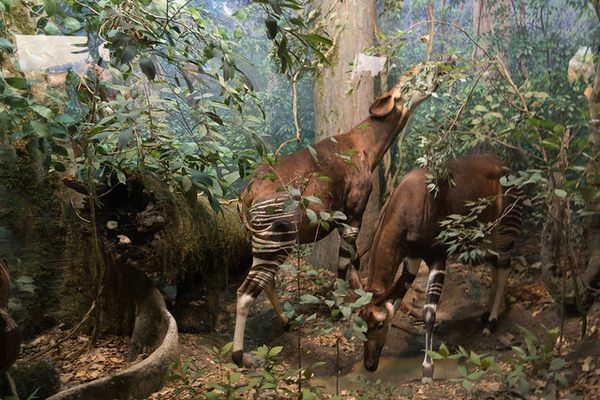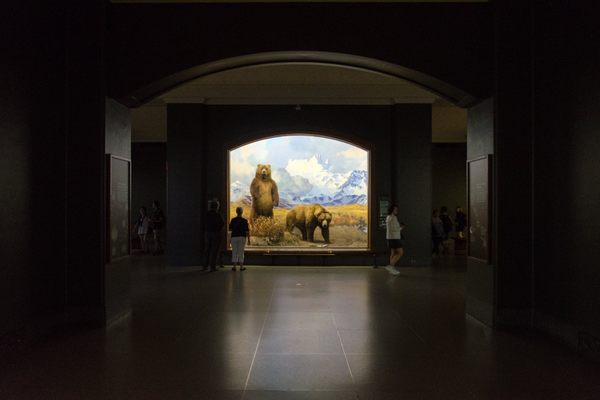About
The 10 large-scale habitat dioramas of the Hessisches Landesmuseum Darmstadt are considered models for the style of wildlife representation that became popular among natural history museums between the 1880s and 1930s. Each outstandingly beautiful display contains up to 100 taxidermy creatures, and involved painstaking study and detailed artwork to reconstruct the animals’ typical environment.
Most of the original components of these dioramas are remarkably well-preserved, making a chance to view them a rare treat. Even though bombings during World War II damaged the museum and the displays endured years of direct UV light exposure, the specimens are still in good condition within their original set-ups.
Each diorama is dedicated to a certain climate zone. Viewing them will take you on a quick tour of the world’s remarkable environments, like the African steppe, a German forest in winter, or a Russian tundra.
The displays also tell a narrative about their era’s zoogeographical knowledge and the line of thinking practiced by Gottlieb von Koch and his colleagues, who created the exhibition. Societal issues and questions such as order, objectivity, hierarchy, family, and nation were projected onto these representations of nature, and the storytelling follows a comparative conception.
In addition to the Darmstadt dioramas, the natural history collection consists of a large skeleton display, reconstructions of early humanoid species, fossils, and curiosities such as the fur of the last wolf killed in Hesse in 1841.
Related Tags
Know Before You Go
The museum is open on Tuesday, Thursday, and Friday from 10 a.m. to 6 p.m. and Wednesday from 10 a.m. to 8 p.m. On Saturdays, Sundays, and some holidays it opens from 11 a.m. to 5 p.m. It's closed on Mondays and a few holidays. Check their website if you plan to visit on a holiday.
The museum itself is an eclectic ensemble and pretty huge. In addition to the natural history collections, there is also a vast gallery of paintings spanning works from the Middle Ages to Joseph Beuys, a collection of Art Deco design objects, historical armory, archeological findings, and ethnological objects. To see the whole museum, you should plan at least half a day.
Published
January 8, 2019
Sources
- https://www.springer.com/la/book/9783030002077
- https://www.stripes.com/travel/darmstadt-there-s-something-for-everybody-at-the-hessisches-landesmuseum-1.28823
- https://www.hlmd.de/en/museum/natural-history/zoology.html
- https://books.google.com/books?id=jaK5BQAAQBAJ&pg=PA129&lpg=PA129&dq=The+Darmstadt+Dioramas&source=bl&ots=2bUroqGQNa&sig=okTQT12haDIiqJNdHO82lp3Ce5I&hl=en&sa=X&ved=2ahUKEwj38YWrzdTfAhXvqFkKHUm8C7oQ6AEwAnoECAcQAQ#v=onepage&q=The%20Darmstadt%20Dioramas&f=false




































